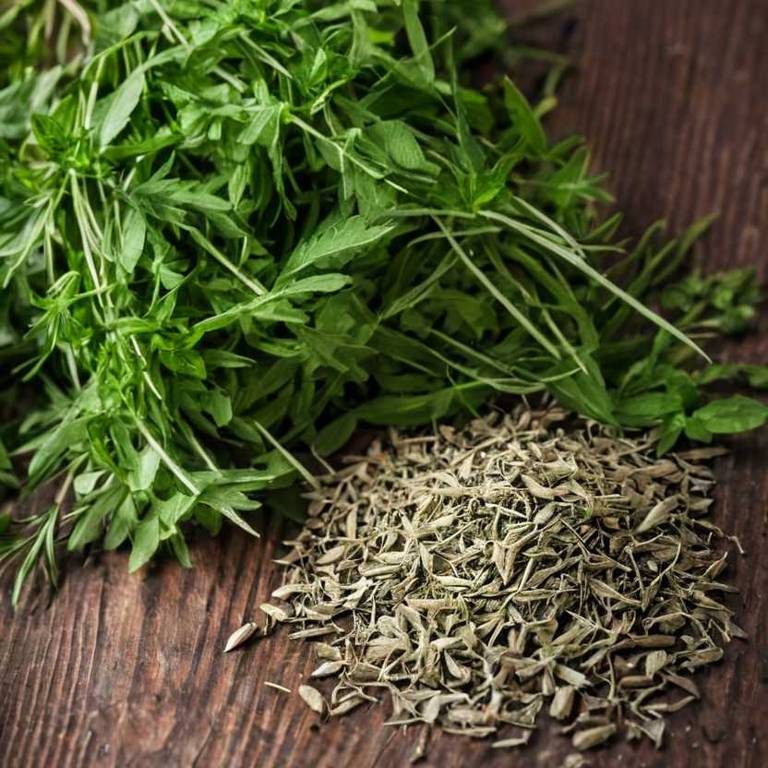By Leen Randell
Updated: Jul 20, 2024
10 Medicinal Constituents Of Carum Carvi (Caraway)

Carum carvi has active constituents such as volatile oils, flavonoids, and phenolic acids.
These compounds possess anti-inflammatory, antispasmodic, and antioxidant properties. Caraway's constituents can improve lives by alleviating digestive issues, such as bloating and gas, and alleviating nausea.
Additionally, caraway's antioxidant properties may help protect against chronic diseases like heart disease and cancer, thereby improving overall health and wellbeing.
This article explains in details the 10 best active constituents of Carum carvi.
1. Cuminaldehyde
Carum carvi cuminaldehyde is a naturally occurring compound found in its seeds and leaves.
This aromatic oil has been widely used for centuries due to its distinct sweet and spicy flavor, similar to cinnamon. Cuminaldehyde is responsible for the characteristic scent of caraway and is often employed as a spice, food additive, and traditional medicine.
Its therapeutic properties include digestive benefits, antimicrobial effects, and anti-inflammatory activities.
2. Carvacrol
Carum carvi carvacrol is a natural compound extracted from the seeds of the Carum carvi plant.
It is a monoterpene phenol that has been used for centuries in traditional medicine and culinary applications due to its antimicrobial, antioxidant, and anti-inflammatory properties.
Carvacrol is responsible for the distinct aroma and flavor of caraway seeds, and it has also been studied for its potential therapeutic uses, including as an antibacterial agent and a natural food preservative.
3. Thymol
Carum carvi thymol is a type of essential oil extracted from the seeds of the caraway plant.
It has been used for centuries in traditional medicine and culinary practices. Thymol possesses antimicrobial and antifungal properties, making it effective against bacteria, viruses, and fungi.
Its aromatic flavor and scent are also commonly used in herbal remedies, cosmetics, and food products to promote digestive health, reduce inflammation, and enhance cognitive function.
4. Cadinene
Carum carvi cadinene is a type of sesquiterpene compound found in the essential oil of the caraway plant.
It has been shown to have numerous biological activities, including antibacterial and antifungal properties, as well as antioxidant and anti-inflammatory effects.
Cadinene has also been found to have potential therapeutic applications, including treatment of respiratory diseases and skin conditions.
5. Piperitone
Carum carvi piperitone is a bioactive compound extracted from the seeds of the plant.
Piperitone has been traditionally used in folk medicine for its antispasmodic, anti-inflammatory, and antioxidant properties. Research has shown that it exhibits inhibitory effects on bacteria and fungi, making it a potential natural antimicrobial agent.
Additionally, piperitone has been found to possess analgesic and sedative properties, offering promise as a therapeutic treatment for various health conditions.
6. Limonene
Carum carvi limonene is a naturally occurring compound found in the essential oil of caraway seeds.
It is a monoterpene hydrocarbon that is responsible for the characteristic aroma and flavor of caraway.
Limonene has been shown to have various biological activities, including anti-inflammatory and antioxidant properties, and is often used as a food additive or natural remedy.
7. Terpinen-4-ol
Carum carvi terpinen-4-ol is a sesquiterpene compound that is extracted from the seeds of the plant.
It has been traditionally used in herbal medicine for its various therapeutic properties, including antifungal, antibacterial, and anti-inflammatory activities.
Terpinen-4-ol has also been shown to have antioxidant and anticancer effects, making it a valuable component in natural health remedies.
8. Linalool
Carum carvi linalool is a naturally occurring compound found in the seeds of this herbaceous plant.
It is a colorless liquid with a sweet, floral, and slightly spicy aroma, which is widely used in aromatherapy for its calming and relaxing properties.
Linalool has been shown to have a sedative effect on the nervous system, making it an effective ingredient in massage oils and skincare products.
9. Carvone
Carum carvi carvone is a naturally occurring compound found in the seeds and essential oil of the plant.
It has a distinctive sweet and nutty aroma and is commonly used in traditional medicine, food, and perfumery.
Carvone has been shown to have several health benefits, including anti-inflammatory and antiseptic properties, making it a popular ingredient in skincare products and natural remedies.
10. Γ-terpinene
Carum carvi γ-terpinene is a naturally occurring monoterpene compound found in the essential oil of its seeds.
This aromatic hydrocarbon has been identified as a major component of caraway oil, responsible for its distinctive flavor and aroma.
It is also known to exhibit various biological activities, including antibacterial, antifungal, and antioxidant properties, making it a promising natural product for medicinal and cosmetic applications.